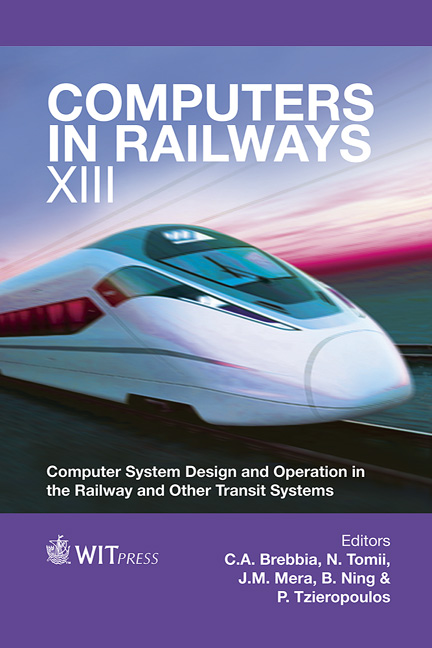Coordinated Train Control In A Fully Automatic Operation System For Reducing Energy Consumption
Price
Free (open access)
Transaction
Volume
127
Pages
11
Page Range
3 - 13
Published
2012
Size
2,969 kb
Paper DOI
10.2495/CR120011
Copyright
WIT Press
Author(s)
J. Xun, X. Yang, B. Ning, T. Tang & W. Wang
Abstract
Energy efficient train operation includes four levels for energy saving: energy efficient driving, real-time multi-train coordination and rescheduling, energysaving timetabling, and energy-saving planning. For a fully automatic operation system, it provides a flexible way to coordinate trains. The coordination of trains can improve some system performances, such as the efficient use of regenerative energy. The efficient use of energy regenerated by other trains which are during braking phase can contribute to reducing energy consumption. In general, the approaches of coordinated train control for using regenerative energy can be divided into two types: train dwell time control and train running time control. This paper proposes an approach for coordinating trains in fully automatic operation system by modifying running time between adjacent stations. Simulation studies are performed and the usage of regenerative energy and average passenger waiting time is analysed by using the proposed method. It is shown that improvements in the usage of regenerative energy can be achieved by using the proposed method. Keywords: coordinated train control, energy-saving, fully automatic operation, running time control.
Keywords
coordinated train control, energy-saving, fully automatic operation, running time control





